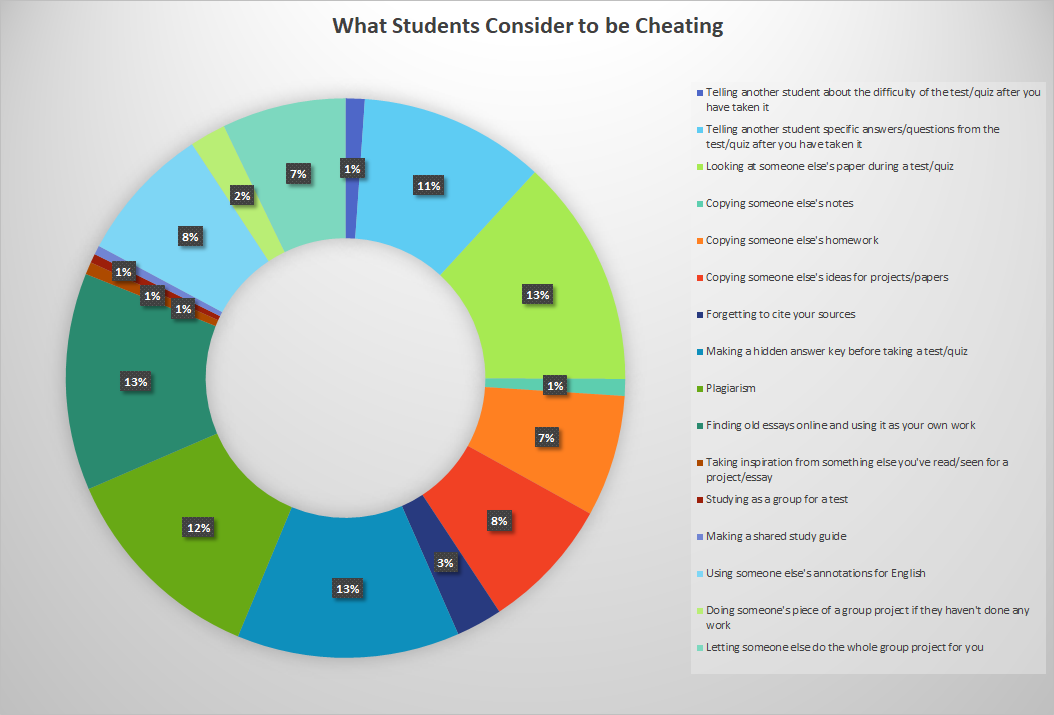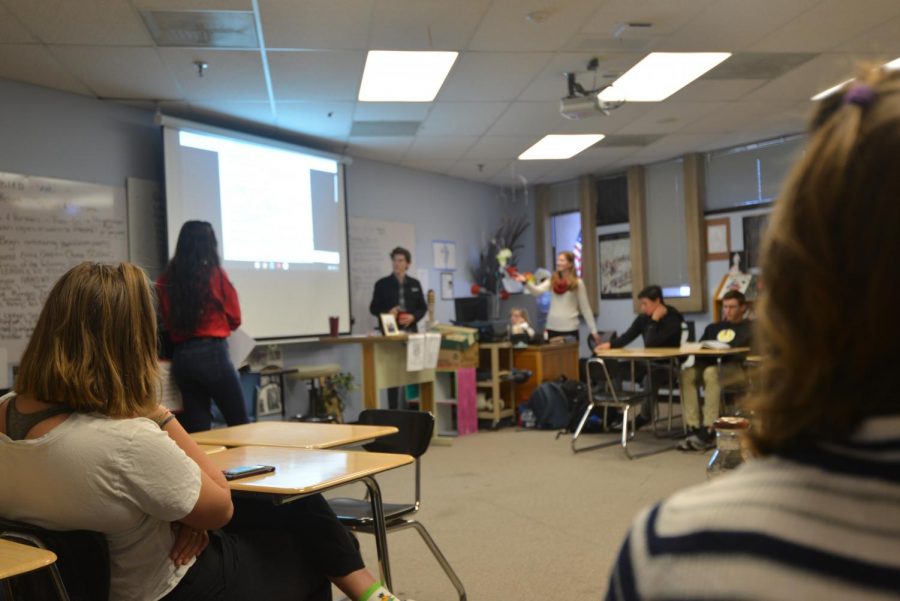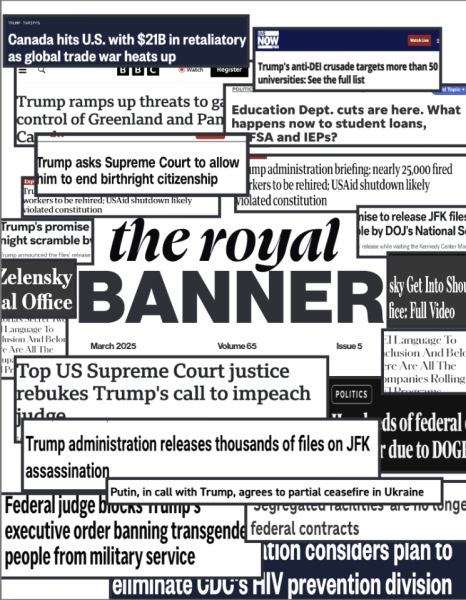“We’re A Very Pressure Driven Student Body” – How Cheating Is Interpreted As Acceptable
An Honor Council Meeting; Nick Shehigian and other Honor Council members discuss their plans to improve academic honesty.
Almost every student fears having cheating on their record, whether it be for a small infraction, like copying homework, or something more serious, like cheating on a test. Despite that, students can find cases of cheating — minor or major — at almost any school. A part of the problem of admitting to taking part in cheating is the lack of understanding over what is and isn’t considered academic honesty.
Language Arts teacher Karen Nieb, who also sponsors both Honor Council and National Honor Society, recently did a survey in her AP Language Arts classes to see what her students saw as cheating.
“About 99% said that copying homework and sharing homework [is cheating], so that’s one of the biggest ways. Another way […] was getting […] questions and answers for a test you have in the afternoon from someone that took it in the morning, and so they cited those as the two biggest areas. Coming in not too far third was reading an abridged version, so SparkNotes, for a text,” said Nieb. “The problem is students don’t know what is and isn’t considered cheating and probably their teachers aren’t explicit about it.”
“The problem is students don’t know what is and isn’t considered cheating and probably their teachers aren’t explicit about it.”
One of the issues that is also the hardest to catch is the sharing of answers on a test outside of class. Friends in a later period will ask if there’s anything tricky on the test, and even though it doesn’t seem significant, it is still cheating.
When Nieb did that survey in her class, her students also explained why sharing answers could be a problem.

LA Teacher Karen Nieb’s survey of what students think about cheating.
“They didn’t think most people went in having done nothing and then expected to get the full test before they walked into that class in the afternoon,” said Nieb, “but they’ve needed that reassurance that they had studied the right thing or that they were going to be okay, and so it’s more kind of support rather than what they would consider blatant cheating.”
Nieb also pointed out a major issue with sharing answers that may be less considered by students.
“If you’re in the first period and I’m in the last period and we both are applying to the same college, and you may have a B and I have an A, and maybe it’s only a percentage point difference, but it’s an A versus a B in our transcripts, the person that I’ve shared my answers with is going to look better,” said Nieb.
The Dean of Students, Taryl Smith, deals with any major cheating cases in the school that teachers report, though she’s only dealt with around eight cases since she started this school year. As a former teacher herself, she felt that understanding what cheating is was pretty cut and dry.
“If you’re not doing your work, don’t do that.”
“If it feels like it’s wrong and it feels like you’re getting an unfair advantage or you’re not doing your work, don’t do that […] It’s better to go into a test knowing that you’re going to get a 50% as opposed to ending up with a zero on it and then having to have that documented on your behavior file — and that can follow you forever,” said Smith. “I think you learn more from not studying for a test and seeing what you do know as opposed to going the other route of just taking somebody else’s work.”
Overall, the leading cause of cheating here seems to be because students are under immense pressure, whether it be from overloading one’s schedule with rigorous courses or from just cracking under the weight of peer pressure.
Nick Shehigian, a senior here, said that as one of the co-chairs of Honor Council, his intent was to help students understand what academic dishonesty means in the student body.
“Mainly I think in order for people to be more aware of cheating is to be more aware of its causes,” said Shehigian. “Competition is one of the bad aspects of Fairview. We’re a very pressure driven student body.”
“Competition is one of the bad aspects of Fairview. We’re a very pressure driven student body.”
Smith thought that the key to curbing this stress lies in the teachers.
“When I taught, it was always important for me to make sure that kids knew that if they needed additional time or if they had a concern about something, that that door was open,” said Smith. “That they could come talk to me, because it’s always better to ask for more time or ask for help than to feel pressured and stressed.”
Teachers can better outline what their policy is on cheating in their particular classroom so students can best avoid getting into sticky situations. It’s very hard for students to know when they’re doing something wrong, because often they are unsure what is and isn’t wrong.
“I think that it’s important for cheating to be outlined in all the different contexts which it could occur, and that’s basically just to get the word out there, but just defining what is and is not cheating,” said Shehigian.
Your donation will support the student journalists of Fairview High School - CO. Your contribution will allow us to purchase equipment and cover our annual website hosting costs.

This is Anna’s second year writing for the Royal Banner. She enjoys writing, reading, and taking her dogs on walks.








